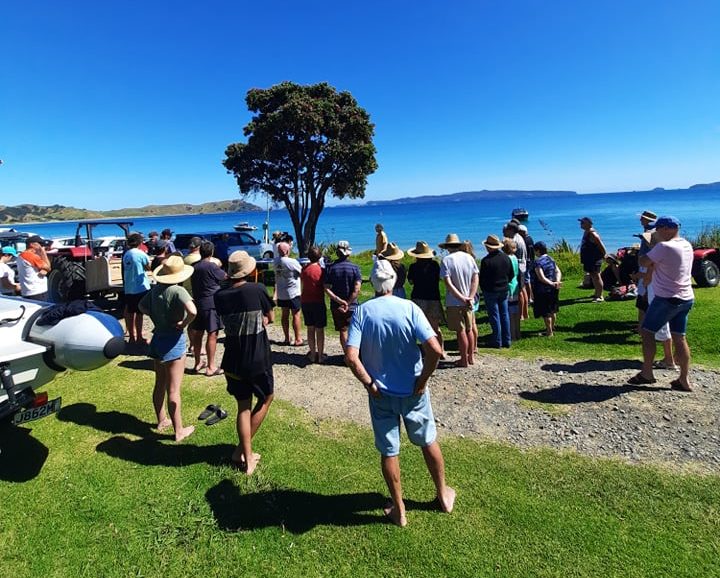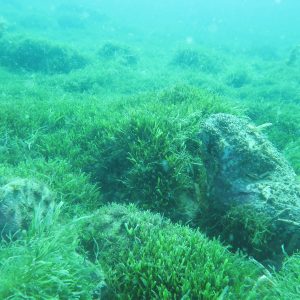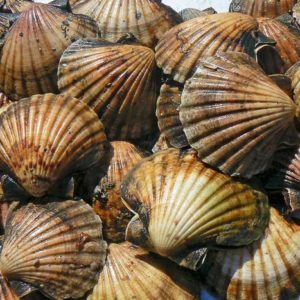Coromandel locals are horrified that Fisheries New Zealand is currently dragging a destructive industrial dredge through the local scallop fishery that has been closed due to depletion since March 2023.
“There has been overwhelming community support for the closure of the local Coromandel fishery because scallop numbers were the lowest we’d ever seen. After all the community’s conservation efforts over the past four years it’s unacceptable for Fisheries New Zealand to be using a dredge, especially given the risk of spreading the invasive seaweed Caulerpa throughout Coromandel waters. It’s not okay,” says Opito Bay Ratepayers Association Chairperson Chris Severne.
Until the fishery was closed, commercial fishers had used the Victorian Box Dredge for decades, causing depletion and damage to vital habitat that supports other sea creatures.
In May a multi-stakeholder working group chaired by Fisheries New Zealand agreed that a non-contact camera survey was acceptable given that the waters off East Northland, Hauraki Gulf, Coromandel and Bay of Plenty were all closed because there are not enough scallops to sustain commercial and recreational harvest.
Results of Fisheries New Zealand’s studies over the past three years show that a dredge survey is only 70 percent efficient compared to camera-diver surveys which are 100 percent efficient. NIWA has just finished using cameras to survey the local Coromandel beds and found very few scallops.
“It’s dredging that has brought us to this point of depletion so it’s encouraging that the camera surveys that have been developed over the past couple of years are so efficient and less damaging. It’s unthinkable that anyone is considering using a dredge to find scallops that are clearly not there,” says Tairua-Pauanui Sports Fishing Club President Warren Maher.
In 2020 the Fishing Club, Ngāti Hei, the Opito Bay Ratepayers Association, LegaSea, New Zealand Sport Fishing Council, New Zealand Underwater Association, and representatives from other Coromandel communities formed the Coromandel Scallop Restoration Team with the aim of restoring and sustaining scallop populations in local waters.
The Restoration Team commissioned a dive survey supported by local retailer Dive Zone Whitianga. Warren Maher, Team member and dive survey leader, was shocked by the survey results. At the time he relayed concerns from the divers about the damage caused by dredges and the low numbers of small scallops.
Project Lead Sam Woolford says LegaSea was one of many groups in 2021 calling on the Minister to reduce catches or buy out the quota in the Coromandel scallop fishery. He said it is very frustrating that officials are once again bowing down to commercial interests when they challenge the results of peer reviewed studies.
“The Coromandel area was the last commercial scallop fishery left in New Zealand, reduced from a highly successful fleet of 23, down to just four vessels. The results from the camera survey are clear. Dredging is not a successful or sustainable strategy. We need a buy-out so we can rebuild scallop numbers to a viable level, then when the fishery reopens, only permit low impact fishing techniques and seasonal closures.
“No problem was ever solved in the same consciousness that created it. A dredging survey now doesn’t make sense. The Minister must intervene and put a stop to any dredge survey, to ensure we have a high value scallop fishery in the future.”



